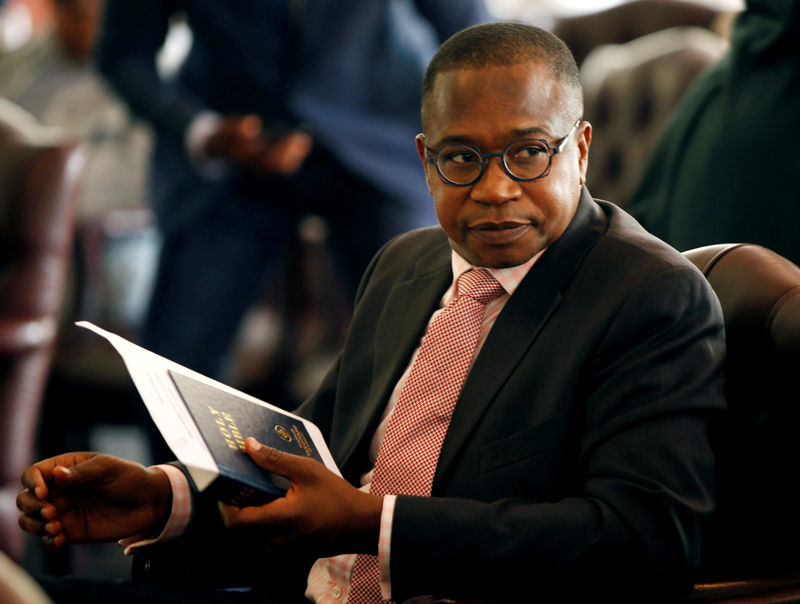By Alexander Winning and Wendell Roelf
CAPE TOWN (Reuters) - Zimbabwe plans to start talks in early 2020 on clearing arrears on its international debt, Finance Minister Mthuli Ncube said, as it seeks to rebuild confidence in an economy ravaged by high inflation and shortages of hard currency and basic goods.
Arrears on World Bank and African Development Bank loans total almost $2 billion, he said, and clearing that may be crucial to securing new funds to help lift the country out of crisis.
Ncube, speaking to Reuters on the sidelines of a World Economic Forum on Africa conference in Cape Town, said Zimbabwe would "cast the net wide", from G7 countries to banks, to secure the bridging loans it would need to pay off those arrears.
Asked if foreign investment was being deterred by a crackdown on anti-government demonstrations, Ncube said protests naturally hurt investor sentiment but that President Emmerson Mnangagwa was determined to build an inclusive society.
Mnangagwa "has launched a political dialogue process that didn't exist in the past," Ncube said.
"...Some of the parties are not participating and some of them are those protesting... (Protest) doesn't mean that the government is not making an effort to make sure there is a more cordial environment... The effort is being made every day."
Zimbabwe is mired in triple-digit inflation, rolling power cuts and shortages of U.S. dollars, basic goods, medicines and fuel.
That toxic economic cocktail has fueled civil unrest - prompting a de facto government ban on dissent by the main opposition MDC party that it has likened to repressive tactics used by Mnangagwa's predecessor Robert Mugabe - and raised fears of a return to the runaway inflation that forced the country to ditch its currency a decade ago.
Ncube, who predicted the economy would contract this year before rebounding in 2020, said he was "not happy" with current inflation levels but that fears of a return to hyperinflation were unfounded.
Mnangagwa's government agreed a staff-monitored International Monetary Fund (IMF) program in April that aims to restore stability by implementing reforms and correcting economic imbalances.
After the IMF's final review early next year, "the idea... would (be) we go into negotiations on how to clear the (World Bank and AfDB) arrears," Ncube said.
"...We need some kind of bridging loan or facility because we don't have enough resources to be able to clear all the arrears. We need about a $1 billion in terms of the shortfall we need for those two."
Zimbabwe's annual inflation hit 175% in June, the highest since runaway money-printing and associated price rises forced the country to adopt the U.S. dollar in 2009.
Ncube on Aug. 1 suspended the publication of year-on-year inflation figures until February 2020 because the base for calculating them had been impacted by the adoption of a new currency. Zimbabwe would not "rush" to print large amounts of it, he said.
He forecast the economy would contract by around 3% percent this year, hurt by a drought and power outages, but rebound to growth of 3% next year. In its April World Economic Outlook, the IMF forecast a 2019 contraction of 5.2%.

The southern African nation also hopes to narrow its budget deficit from around 4 percent of gross domestic product this fiscal year to 3 percent next, Ncube said.